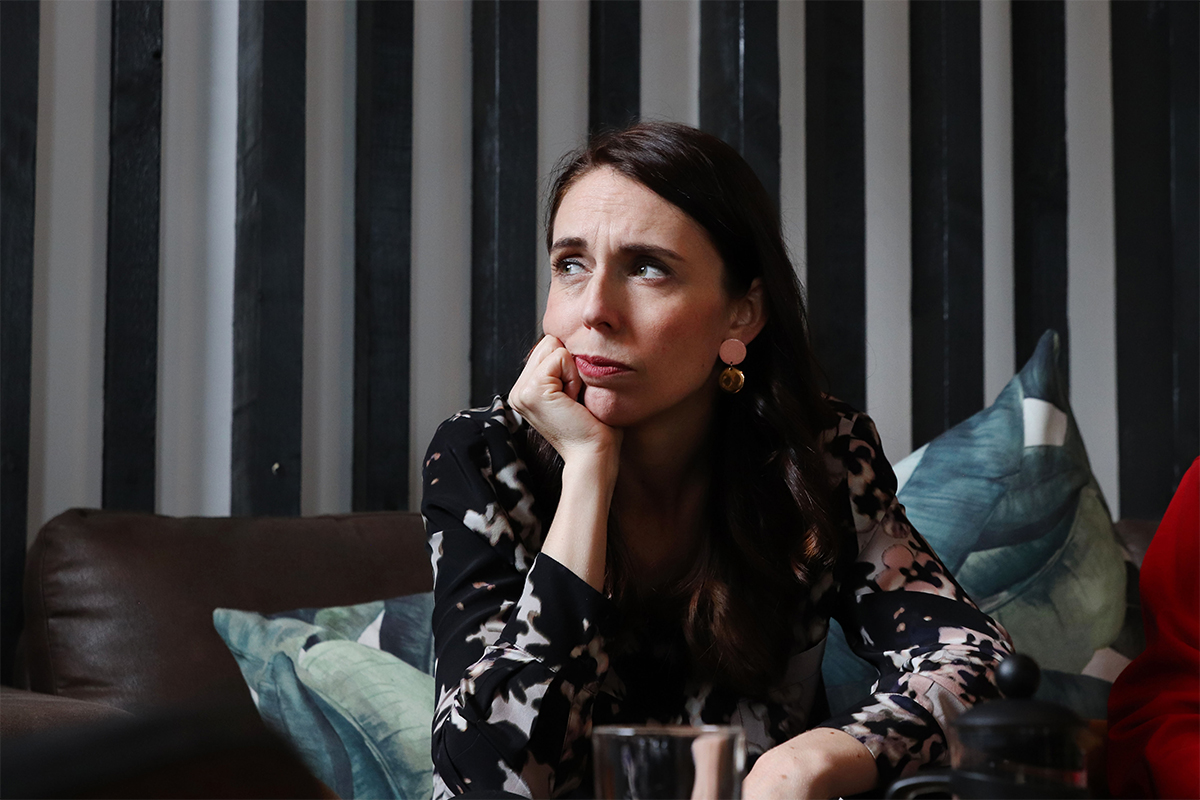To state that leading a business, let alone a country, is challenging is an understatement.
Whether or not you agree with former Jacinda Ardern’s policies, promises or crisis management of the COVID-19 pandemic, her open and honest explanation of why she decided to leave her role as New Zealand Prime Minister may have rewritten the rules for the qualities leaders should possess today, especially in the context of the complex times in which we are living.
She is one of only two world leaders to have given birth during office, which further highlights the possibilities for change she has created for those who serve thereafter.
“I’m leaving, because with such a privileged role comes responsibility – the responsibility to know when you are the right person to lead and also when you are not.
“I know what this job takes. And I know that I no longer have enough in the tank to do it justice. It’s that simple,” she said.
While Ardern doesn’t explicitly state burnout as the underlying cause of her departure, it’s clear from the tank metaphor she uses, that she’s humble enough to admit that she’s no longer able to serve as Prime Minister at the level that the job requires. “I am human. Politicians are human. We give all that we can, for as long as we can, and then it’s time,” she said.
“Many may ask if she is ‘a quitter’ or ‘a fighter’?” noted Mohammad Imtiaz Uddin Chowdhury, Head of Sales & Marketing at BSRM. “I think she is a real fighter who needs to take rest by not leaving the battlefield, but by handing over the baton.”

Former New Zealand Prime Minister Helen Clark acknowledged the context in which Ardern served as Prime Minister, a scenario which many leaders can likely relate to. “The pressures on prime ministers are always great, but in this era of social media, clickbait and 24/7 media cycles, Jacinda has faced a level of hatred and vitriol which, in my experience, is unprecedented in our country.”
While business leaders might not be navigating a country through a global pandemic or a domestic terrorist attack, the pressures they are under to remain switched on for extended periods of time and to make high-stakes decisions are arguably not sustainable.
“You don’t have to be the leader of a country to be under constant pressure to perform. Today, leaders have multiple communication avenues, with information cycles that are quicker than they have ever been,” explains Peter Hayton, Chief Psychologist at The Banyans Healthcare Group. “I’ve spoken to many small business owners who say they simply can’t afford to take time off, to have a holiday, and when they do, they have to work doubly hard before they leave and when they get back.”
Hayton also notes that leaders are often prone to adopt the attitude that the most responsible thing they can do for their team and their organization is to “keep busy and keep going.” He argues that addressing issues of self-care is critical before leaders decide to quit.
While high-profile personalities, including Arianna Huffington, Simone Biles, Bill Gates and Naomi Osaka have attempted to shift the dominant perception that overworking brings you closer to achieving success, there is clearly still a lot of work that needs to be done.
A recent Deloitte survey uncovered that close to 70 percent of C-suite level executives are contemplating putting in their resignation and switching to a job that better supports their wellbeing.
“You don’t have to be the leader of a country to be under constant pressure to perform. Today, leaders have multiple communication avenues, with information cycles that are quicker than they have ever been.” – Peter Hayton
One could argue that leaders who choose to take on the role of a CEO or high-level executive are aware of the nature of the position, but they also need to be aware of the warning signs of burnout.
“Pressures are essential ingredients that any leader signs up for,” affirmed Sanjeev Agrawal, Executive Director and CFO at Bean Media Group. “Burnout is not just about pressures in leadership. It is a very human thing that can happen to anyone depending on circumstances, support and priorities.”
Adern’s resignation has sparked conversations about our expectations of leaders and whether they are realistic, given that executives are increasingly prepared to depart from high-paying positions if the demands of their job are too burdensome. Is effective leadership more temporary than we think?
“Jacinda’s leadership shines through by her courage in making this decision, on her terms, when she chose to,” said Melissa Robertshaw, Chief Technology Officer at TripADeal.
“Jacinda has demonstrated integrity through transparency in her reason for not running for re-election. There is no shame at all. I would suggest her leadership style is an antidote to burnout,” acknowledged Cherie Nicholl, Non Executive Director at Women Sport Australia. “In my experience, having experienced burnout, it is a direct result of a lack of transparency, lack of support, misalignment of expectations and a toxic culture.”
Ruth Limkin, CEO of The Banyans Healthcare Group, has concerns about the “unsustainable and damaging environments” high-profile leaders operate in.
“People have physiological limits to the amount of sustained chronic stress they can withstand – we have to allow people the opportunity to ‘close the stress cycle’, have breaks and not be needed 24/7.”
She reminds us that, “If we follow the science, we know that a well-rested and recovered leader is going to make better decisions and execute more efficiently.”
When is it time to voluntarily step down?
Hayton explains that burnout warning signs fall into three distinct categories:
- Emotional tiredness or exhaustion
- Lack of empathy, caring or compassion
- A decrease in motivation
Crucial questions for business leaders to ask before stepping down
- Is it the right time to be making a change in leadership?
- What does the business require to move forward?
- What will my next chapter in life look like without this role?
- How will I manage this transition?
- Am I ready to relinquish control and allow someone new to lead the company?
High-profile leaders who have voluntarily quit

Rubin Ritter, former Co-Chief Executive, Zalando
Rubin Ritter was one of Germany’s highest paid executives before he decided to prematurely end his contract in May 2021. Instead, he chose to focus on supporting his wife’s career goals and nurture his family commitments.
“I want to devote more time to my growing family. After more than 11 amazing years where Zalando has been my priority, I feel that it is time to give my life a new direction,” he said. “My wife and I have agreed that, for the coming years, her professional ambitions should take priority.”
Sheryl Sandberg, former Chief Operating Officer, Meta
Since Sandberg joined Facebook (now part of Meta) in 2008, she’s been involved in shaping the company’s policies and dealing with public controversies. Her departure in late 2022 to serve on Meta’s board and focus on her philanthropic work and caregiving duties marks the end of a 14-year stint in the job.
“The debate around social media has changed beyond recognition since those early days,” she said. “To say it hasn’t always been easy is an understatement. But it should be hard. The products we make have a huge impact, so we have the responsibility to build them in a way that protects privacy and keeps people safe.”
Reed Hastings, former Co-Chief Executive, Netflix
The Netflix Co-Founder recently announced that he would step down as Co-CEO to dedicate more time to philanthropy and Netflix stock. This decision was made against the backdrop of the company striving to keep ahead of the competition and restrained consumer spending.
“Our board has been discussing succession planning for many years (even founders need to evolve!),” Hastings wrote in his blog.







